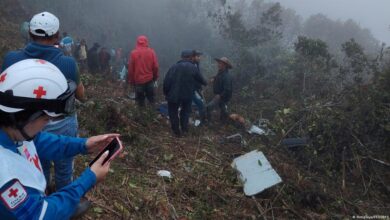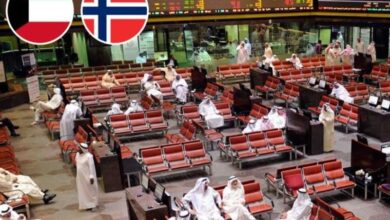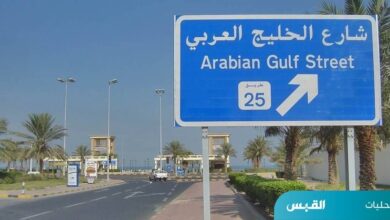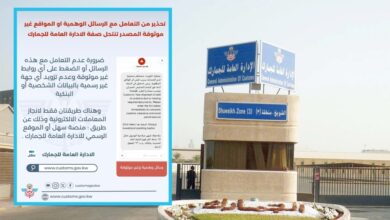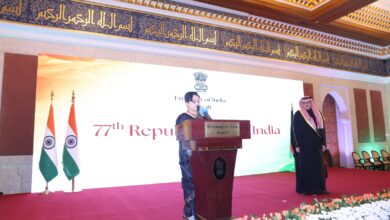GCC Summit signals growing global influence of group
The 45th GCC summit is expected to be a milestone event
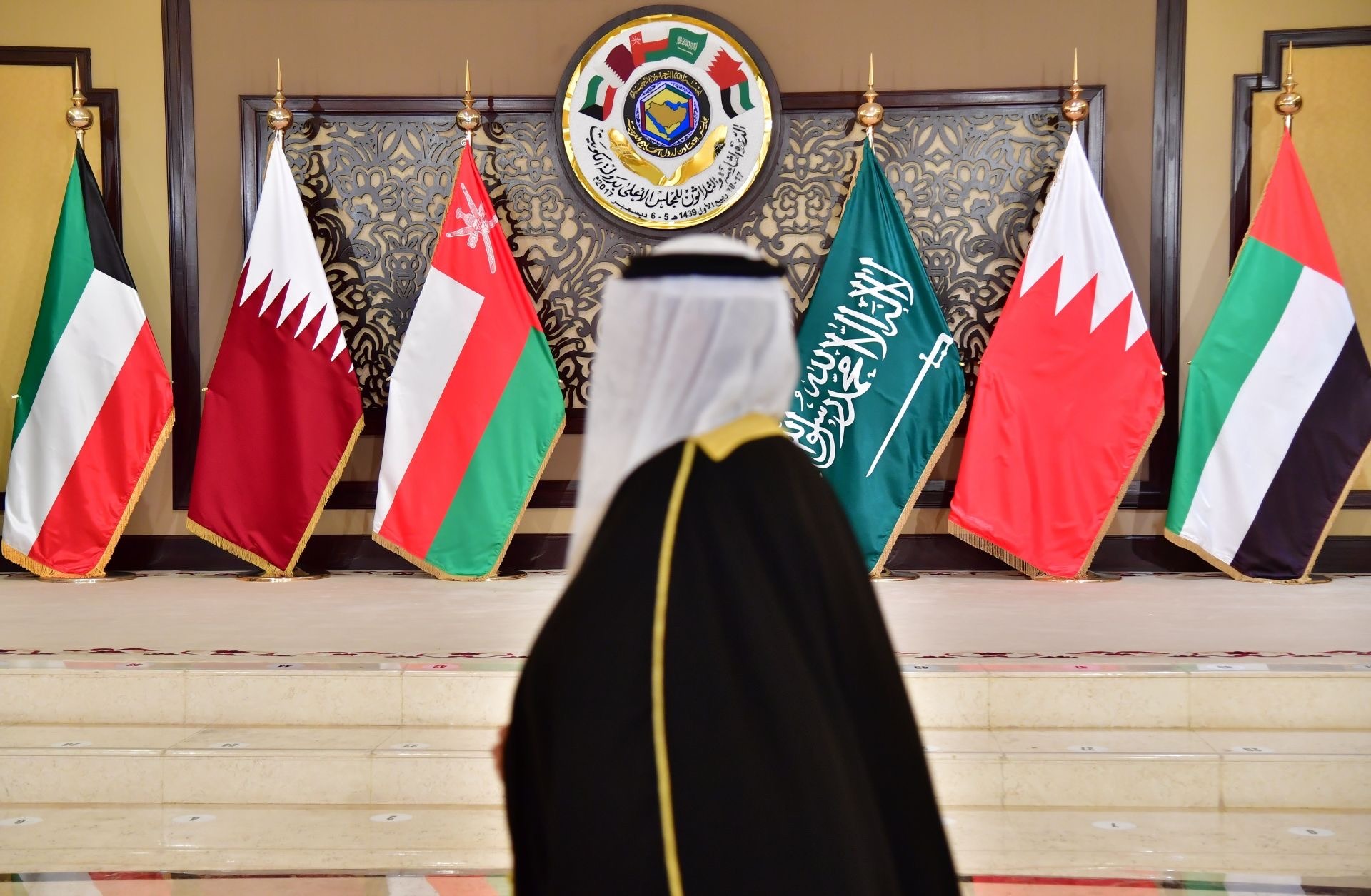
By Tareq Yousef Al-Shumaimry
Their Majesties and Highnesses, the leaders of the six Gulf Cooperation Council states are convening in Kuwait on 1 December, for the 45th Supreme Council Summit of the Gulf States. Ahead of the pivotal summit, we take a look at the growing significance and influence of the six-nation bloc in regional and international affairs.
The groundwork for the formation of the Gulf Cooperation Council, more formally known as the Cooperation Council for the Arab States of the Gulf, was laid by the late Amir of Kuwait Sheikh Jaber Al-Ahmad Al-Jaber Al-Sabah, and the late President of the UAE Sheikh Zayed bin Sultan Al Nahyan, both of whom played a crucial role in fostering the idea of closer cooperation among Gulf states.
The shared vision for regional unity, security, and economic integration among leaders of Bahrain, Kuwait, Oman, Qatar, Saudi Arabia, and the United Arab Emirates led to the official establishment of the GCC, through a Charter signed by the six states in Abu Dhabi, United Arab Emirates, on 25 May 1981. The GCC Charter
enshrines achieving unity among its members based on their common objectives and similar political and cultural identities that are deeply-rooted in Arab and Islamic cultures.
Arguably the most important article of the GCC charter is Article 4, which states that the alliance was formed to strengthen relations among its member countries and to promote cooperation among the countries’ citizens. The GCC also has a defense planning council that coordinates military cooperation between member countries.
The highest decision-making entity of the GCC is the Supreme Council comprising GCC heads of state who gather at their annual summit and adopt decisions that have unanimous approval.
The GCC Ministerial Council, made up of foreign ministers or other government officials, meets every three months to implement the decisions of the Supreme Council and to propose new policies. The administrative arm of the alliance is the office of the Secretariat-General, which monitors policy implementation and arranges meetings.
Cooperation and coordination over the years has led to member states realizing significant benefits in various sectors. The education sector in particular has received emphasized attention over the past 42 years, and resulted in many achievements, including equality in general and technical education and promoting the values of Gulf citizenship. In the field of higher education and scientific research, the GCC countries established the Gulf Network for Quality Assurance in Higher Education, and adopted the guide for good practices and equality between GCC residents in treatment in universities and government higher education institutions.
In the health field, the GCC countries have demonstrated their great cooperation through the exchange of medical expertise and technologies between member states and coordination between them to combat epidemics and preserve the health of communities in the region. The COVID-19 pandemic highlighted the important role of cooperation and coordination between member states in controlling trans-border infections through exchange of vital information and epidemiological updates, as well as processes such as quarantine and restricting travel and trade between countries.
Among the most important achievements in the fields of culture, tourism, antiquities and museums was the establishment of the Translation and Arabization Center and interest in the Arabic language, the adoption of the organizational structure of the center, the adoption of the new cultural strategy for the GCC countries (2020-2030 AD), the adoption of the guiding law for antiquities: to preserve and care for antiquities and the unified permanent exhibition of antiquities at the headquarters of the General Secretariat and the program of cooperation in the field of antiquities with countries of the world.
In the field of youth and sports, the GCC countries have achieved many accomplishments, including the GCC Cup, the strategy for developing joint work in the sports field, adopting regulations for the technical committees affiliated with the Committee of Ministers of Youth and Sports, establishing an online database for youth work, and the strategic plan by the Committee of Ministers of Youth and Sports.
Innovation and invention have also received the attention of the Cooperation Council, as the Patent Office was established at the GCC General Secretariat in October 1998. It is an office specializing in the field of patents within the framework of the GCC by presenting an award to support innovation and invention as a contribution to motivating inventors and talented people.
Throughout their journey, the GCC countries have been keen to raise the level and efficiency of Gulf women and to actively support and participate in all fields at the local, regional and international levels. Statistical indicators have shown that the percentage of women in senior positions and boards of directors of companies in the GCC has reached 50 percent. The percentage of women’s economic participation in some GCC countries has reached 65 percent, while the percentage of women in university education has reached 59 percent, and the percentage of their participation in legislative bodies in the GCC countries has reached 50 percent.
The GCC countries have also become a hub for investments and trade in the region, and are strengthening their role as a major player in the global economy through their strategic geographical location, natural resources, and reliance on strong economies. Additionally, the GCC countries have achieved remarkable success in enhancing economic cooperation among them by diversifying their economic bases and achieving economic integration, as well as enacting joint policies and procedures. The bloc has also provided significant support to various economic sectors, including energy, trade, technology, tourism, and transportation. J
In 2003, the Gulf Common Market was launched with the aim of establishing a common market for goods and services and achieving freedom of trade and movement of people and capital between member states. The common market included removing trade barriers, coordinating trade policies, and establishing a committee for settling trade disputes.
A customs union with a unified customs system was also established between the GCC countries. The customs union aims to remove customs duties and trade barriers between member states, promote free trade and facilitate the movement of goods and services across borders.
While in the early years of the GCC, the focus was mainly on security and political cooperation, over time the scope of cooperation expanded to include economic aspects. In 1983, the Public Investment Fund of the Gulf Cooperation Council was established, which aims to promote investments and implement development projects in member states, and in 1989, the Bahrain Economic Development Fund was established, and the Qatar Development Fund in 1991.
An Economic and Monetary Cooperation Agreement between the GCC countries was signed in 1981, aiming to enhance cooperation in the financial and monetary fields, including coordination of financial and monetary policies and enhancing cooperation in the banking field. The GCC countries have also signed many free trade agreements with other countries around the world to facilitate the movement of goods, enhance inter-trade, expand investment opportunities and develop strong trade relations.
The GCC countries have paid great attention to developing the region’s infrastructure, as many huge projects have been launched in the fields of transportation, energy, water and communications, including the development of renewable energy projects and desalination plants, and the construction of a bridge linking the Kingdom of Saudi Arabia and the Kingdom of Bahrain.
The tourism and hospitality sector is especially vital to the GCC countries as a means of diversifying their hydrocarbon based economies. A wide range of huge tourism projects have been developed, such as luxury hotels, tourist resorts, shopping malls and entertainment areas. These projects aim to attract tourists, boost the local economy and provide job opportunities.
The energy industry continues to be the most important sector of economic cooperation between the GCC countries, as the region is characterized by the presence of huge reserves of oil and natural gas, and the member states are working to enhance cooperation in the fields of production, export, exploration and modern technology in the field of energy.
Over the decades since its establishment, the GCC has, in parallel with its Islamic and Arab lineage, also carved an unique identity for itself based on the cultural and traditional heritage of people in the region, and their shared vision of regional unity, security, and economic integration. The dichotomy from the rest of the Middle East, supported by ample hydrocarbon wealth, has allowed the GCC to steadily increase its collective power and influence not only across the region, but also on the international stage.
The increasingly pivotal role of GCC in global affairs is also underscored by its strategic proximity to geopolitically volatile regions and its location abutting major sea lanes vital to global trade, as well as its significant influence in mitigating political and economic crises regionally and internationally. The influence of the bloc is also buttressed by its immense hydrocarbon reserves and the persuasive investment power wielded by its sovereign wealth funds, as well as its sizable contributions to global humanitarian and development aid to nations in need.
Additionally, the GCC states have been a substantial source of remittance flows to countries in the Middle-East, South, and South-East Asia, with the billions of dollars repatriated annually by GCC expatriate workers supporting families back home. The global financial crisis in 2008 and the COVID-19 pandemic in 2020 highlighted the key role of GCC, both as a stabilizing economy, and a source of livelihood for millions of migrant workers. Conversely, the large expat population underlines the overwhelming dependence of GCC states on foreign workers for their development.
The annual GCC Supreme Council Summit provides a forum for the GCC leaders to discuss and develop unanimity in policies aimed at strengthening cohesion and cooperation among the six states, as well as finding consensus on regional and international issues of concern to the bloc. This consonance and unity on major regional and international issues not only magnifies their voice in world forums, but also forms an essential factor in formulating their domestic and foreign policies.
In the communiqué issued at the conclusion of the 44th GCC Supreme Council Summit in Doha, Qatar in 2023, the leaders reviewed progress in implementing the vision of the Custodian of the Two Holy Mosques, King Salman bin Abdulaziz Al Saud, endorsed during the 36th GCC Summit in 2015, to achieve economic unity, and coordinate positions to further enhance GCC solidarity and stability.
The Council also reviewed progress in implementing the decision of the Supreme Council in its 32nd session in 2011, on the proposal of the Custodian of the Two Holy Mosques, King Abdullah bin Abdulaziz Al Saud, to transition from the cooperation council stage to a full GCC union. At the 44th Summit, the leaders directed the GCC General Secretariat to present the latest progress on these matters at the next session of the Supreme Council slated to take place in Kuwait.
The imperative of transitioning from a cooperation council to a full-fledged union of Gulf states and the need to push forward economic integration was reiterated recently by the Secretary General of GCC, Jassim Mohammad Al-Budaiwi. Addressing a consultative meeting of GCC Ministers of Commerce and Industry and heads of the Unions and Chambers of Commerce of the six states,in Doha, Qatar on 31 October, Al-Budaiwi emphasized the pivotal role of the private sector in realizing the goal of economic integration.
Presenting statistics on current trade volumes, Al-Budaiwi said that in 2023 the combined GDP of the GCC states was around US$2.1 trillion, which placed the bloc among the advanced countries in terms of GDP size. Of this total, intra-GCC trade of $127 billion, and contributions by downstream GCC industries of $264 billion, together represented 19 percent of total GDP in 2023. He added that these economic indicators highlight the significant opportunities that could be realized through economic integration of GCC states.
Recent moves to strengthen tourism integration among Council countries through a Unified GCC Tourist visa, and plans to develop a pan-GCC railway network, are part of efforts to spur economic unity among member states. The unified visa, which will permit holders unrestricted travel across the six states, was approved by relevant GCC ministers in late 2023 and is expected to be launched during the GCC Summit in Kuwait or shortly thereafter.
The common visa and the GCC-wide rail network are projected to boost economies and develop the travel and tourism sector in each state, streamline intra-GCC travel and freight transport, encourage longer stays and wider travel across the GCC, and position the bloc as an attractive and competitive tourism destination for international travelers. Tourism integration is also expected to highlight the broader geographic, ethnic, religious, and traditional homogeneity of the region, while underlining the unique characteristics that exist within each state.
Acknowledging the importance of integration to regional security, the six states also adopted the ‘GCC Vision on Regional Security’ in December 2023. Considering their security and sovereignty inviolable and indivisible, the security vision aims to create and strengthen strategic partnerships with individual states and global regional blocs, to enhance security, stability, and peace, as well as boost sustainable economic growth in the region.
In pursuit of this vision, the GCC states have signed several agreements with regional alliances. In July 2023, the GCC and Central Asian countries held a summit in Jeddah, Saudi Arabia, where the two sides agreed to strengthen political and strategic relations to achieve regional and global security and stability. They also decided to enhance food, water, and energy security, support cultural dialogue, confront climate change, and create trade and investment opportunities..
On a similar vein, the GCC and the 11-nation Association of South-East Asian Nations (ASEAN) held a summit on 20 October 2023, in Riyadh, Saudi Arabia, during which they endorsed the ASEAN-GCC Framework of Cooperation (2024-2028). The framework outlines measures to be implemented to bolster mutually beneficial interests. including enhancing peace, security, and stability of both regions, promoting trade and investment, and increasing people-to-people ties.
The GCC vision for regional security was further cemented by the ‘EU-GCC Strategic Partnership’ that the Council states signed with the European Union (EU) during the EU-GCC Summit held in Brussels, Belgium on 16 October of this year. Among others, the P:artnership, commits the two sides to promote global and regional security and prosperity, prevent emergence and escalation of conflicts, and resolve crises through dialogue and engagement.
Despite the promising outlook, the GCC faces challenges such as geopolitical tensions, economic fluctuations, and the need for continued reforms. Addressing these challenges will be crucial for the region’s long-term success. The future of the GCC is shaped by its commitment to economic diversification, digital transformation, regional security, environmental sustainability, and global influence. These efforts are expected to drive growth and stability in the region over the coming decades.
The 45th summit in Kuwait is expected to be a milestone event that will focus on economic integration, security cooperation, cultural exchange, and sustainable development. The summit, guided by the concepts of the GCC Charter, will also further deepen and strengthen relations within the bloc with the aim of transitioning to a single unified entity that is better able to serve the interests of the GCC states and meet the aspirations of their citizens.
Gulf Cooperation Council Organizations
The GCC has established several organizations, bodies and offices of the Cooperation Council which include the following entities headquartered in the respective countries mentioned below:.
Commercial Arbitration Center of the Cooperation Council for the Arab States of the Gulf – Bahrain.
It is a regional institution for resolving commercial disputes through arbitration and mediation. To promote fair, impartial, and efficient resolution of business disputes among GCC member states, fostering a stable business environment. It offers arbitration and mediation services, organizes training workshops for legal professionals, and raises awareness about alternative dispute resolution methods.
Cooperation Belt Project Office – Bahrain
It is an office dedicated to overseeing regional infrastructure and economic collaboration projects. Its purpose is to enhance economic integration and strengthen connectivity between GCC countries. It also plans and monitors cross-border infrastructure projects such as transportation and trade corridors and ensures timely project execution.
Patent Office of the Cooperation Council for the Arab States of the Gulf – Riyadh
It is a centralized body managing patent applications and intellectual property (IP) protection in the GCC. Its purpose is to safeguard innovators’ rights and encourage technological advancement within the region. It also processes and grants patents, develops IP-related policies, and conducts training programs to promote awareness of intellectual property laws.
Office of the Advisory Board Affairs of the Supreme Council – Oman
It is an administrative office providing policy guidance to the Supreme Council of the GCC. Its purpose is to facilitate informed decision-making by offering expert advice and policy recommendations. It also prepares policy analyses, organizes advisory board meetings, and supports the implementation of council decisions.
Electricity Interconnection Authority – Dammam
This is the authority responsible for managing the GCC electricity grid and ensuring regional energy security. It also enables efficient electricity sharing and improves energy reliability among member states. It Operates and maintains the interconnected power grid, coordinates energy trading, and plans future interconnection projects.
Standardization Organization – Riyadh
This is the body that establishes and enforces unified standards for goods and services in the GCC. It ensures the safety, quality, and compatibility of products across member states. It also Develops technical standards, certifies products, and promotes research in areas such as quality control and standardization.
Office of the Technical Secretariat for Combating Harmful Practices in International Trade – Riyadh
This specialized body addresses unfair trade practices like dumping and subsidies. Its purpose is to protect GCC industries and economies from harmful international trade practices. It also Investigates trade complaints, imposes anti-dumping measures, and advocates for fair trade policies on international platforms.
Criminal Information Center for Combating Drugs – Qatar
It is a regional center for coordinating efforts to combat drug trafficking and related crimes. It helps strengthen the fight against drug-related crimes through intelligence sharing and collaboration among GCC countries. It collects and shares intelligence, coordinates anti-drug operations, and provides training for law enforcement agencies.
Gulf Monetary Council – Riyadh
The council works towards monetary policy coordination and potential currency unification. It also promotes monetary stability and economic integration among GCC member states. It conducts studies on currency unification, aligns monetary policies, and fosters collaboration between central banks.
Intellectual Property Training Center – Kuwait
This center provides training and capacity-building in intellectual property (IP) rights. It also enhances regional expertise in protecting and enforcing intellectual property rights. The center also offers specialized training courses, hosts workshops, and raises awareness about IP issues.
Secure Communications Office – Dhahran
This office ensures secure communication channels among GCC member states. It supports regional security and collaboration through advanced communication systems. It develops encrypted communication networks, maintains secure data transmission systems, and enhances cybersecurity.
Gulf Police Authority – Abu Dhabi
This central authority coordinates policing and security efforts across the GCC. It helps strengthen crime prevention and enhance regional safety and security. It also shares intelligence, organizes joint training programs, and implements regional crime prevention strategies.
Gulf Accreditation Center – Riyadh
This entity is responsible for accrediting products and services to ensure quality and reliability. It promotes trade and consumer trust by aligning GCC standards with international norms. It accredits laboratories and certification bodies, develops guidelines, and supports quality assurance programs.
Statistical Center of the GCC – Oman
This is the official statistics provider for GCC countries. It supports policy-making and development planning through accurate and timely data. It collects and analyzes statistical data, conducts surveys, and publishes reports on economic and social trends.
Gulf Payments Company – Riyadh
It is a financial entity managing cross-border payments within the GCC. It facilitates secure and efficient payment systems for regional transactions. It operates payment platforms, ensures regulatory compliance, and promotes digital financial technologies.
Federation of GCC Chambers – Dammam
This organization represents the private sector across the GCC. Its aim is to advocate for business interests and promote regional economic cooperation. It hosts business forums, facilitates networking, and supports trade initiatives.
Railway Authority – Riyadh
It oversees the development of a regional railway network connecting GCC countries. Its purpose is to improve transportation and foster economic integration. It plans and supervises construction, ensures regulatory compliance, and promotes investment in rail infrastructure.
Gulf Investment Corporation – Dammam
This financial institution invests in regional development projects. Its purpose is to drive economic growth and diversification in GCC countries. It invests in infrastructure, industrial ventures, and financial projects while fostering public-private partnerships.
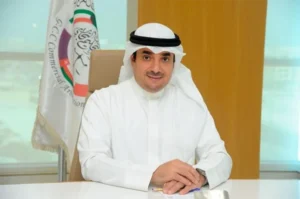
Tareq Yousef AlShumaimry, served as Chairman of the Finance Committee and Chairman of the General Budget Committee of the Permanent Court of Arbitration in The Hague (PCA) and an observer in the Administrative Council of the Court and the Consular at International Court of Justice (ICJ) and the Embassy of the State of Kuwait in the Netherlands during this period from 2013 to 2020. Email: tareq@alshumaimry.com

















